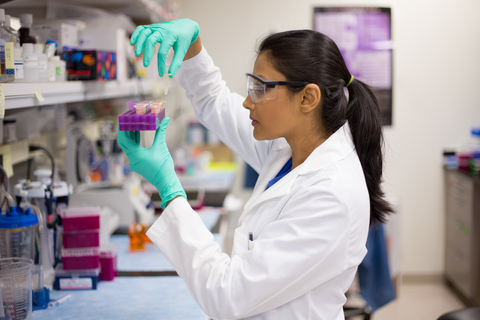Welsh made ventilator trialled in Bangladesh

A new Covid-19 ventilator, designed and built in Carmarthenshire, is being trialled on patients in Bangladesh.
The BBC reports initial results from clinical trials in Dhaka have been described as “very encouraging”.
We reported in March how consultant anaesthetist Dr Rhys Thomas and engineer Maurice Clarke from Ammanford built the Emergency Covid-19 C-PAP device prototype within a week.
It received regulatory approval in April, but a lack of patients in Wales meant trials were held in Bangladesh.
Through a partnership with the Bangabandhu Sheik Mujib Medical University Hospital, Bangladeshi patients have been treated with the non-invasive C-PAP.
Thirty five devices developed in Wales are being used in Bangladesh.
Prof AKM Aktaruzzaman from the hospital said the initial results were “very promising” and it could prove to be a “landmark trial.”
The latest version of the ventilator, developed at the CR Clarke factory in Ammanford, is copper plated and has viral filters to help stop the spread of Covid-19.
Rhys Thomas said “We were very lucky to get involved with the foremost hospital and university in Dhaka. The early indications from the study is that it is working very, very well.”
He said early intervention with the new device was essential.
He added “It’s absolutely crucial. The first problem with Covid-19 is lack of oxygen being delivered to the blood. C-PAP is incredibly efficient at delivering oxygen.
“What we know, as soon as levels of oxygen drop, it’s so important to be able to get the patient then on a C-PAP machine. That halts the inflammatory storm.
“The problem is the drop in the level of oxygen is silent. The patient don’t appreciate they have low levels. Finding those patients, before they become too sick, is the key to treating Covid-19 effectively.”
Maurice Clarke, from plastics manufacturers CR Clarke, said the potential for the ventilator in treating patients with Covid-19 was huge.
He said “What excites me is that it can genuinely help people suffering from the virus. There is a worldwide need for something of this type.
“The fact we were one of the few to get MHRA [Medicines and Healthcare products Regulatory Agency] approval is quite exciting.
“One of the criteria when we were developing the product was that it needed to be easy to make with a basic number of parts that could then be manufactured anywhere in the world to help the local population.”
If the clinical trial is successful, developers hope to get financial backing from the US to expand production.








